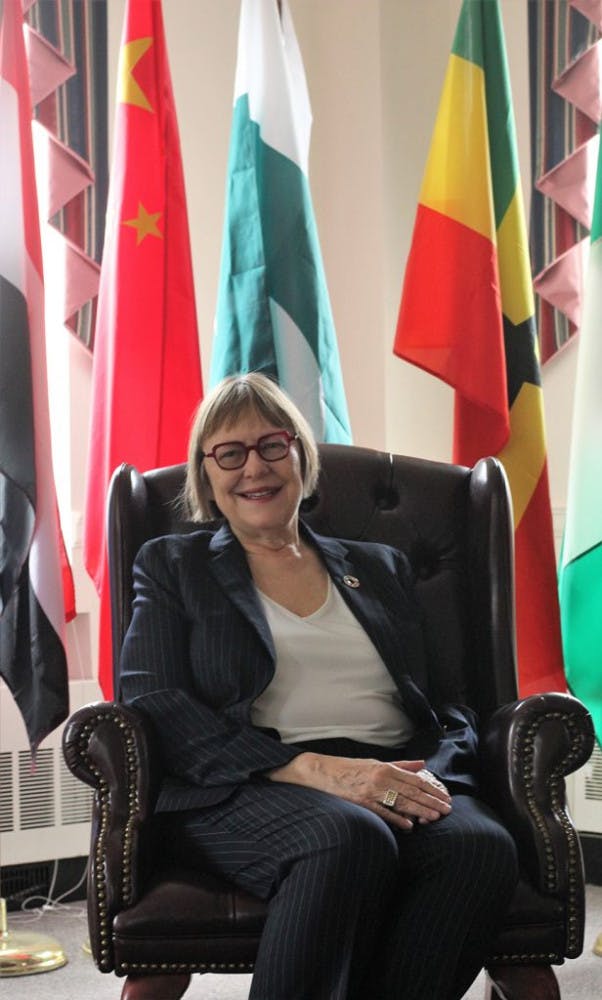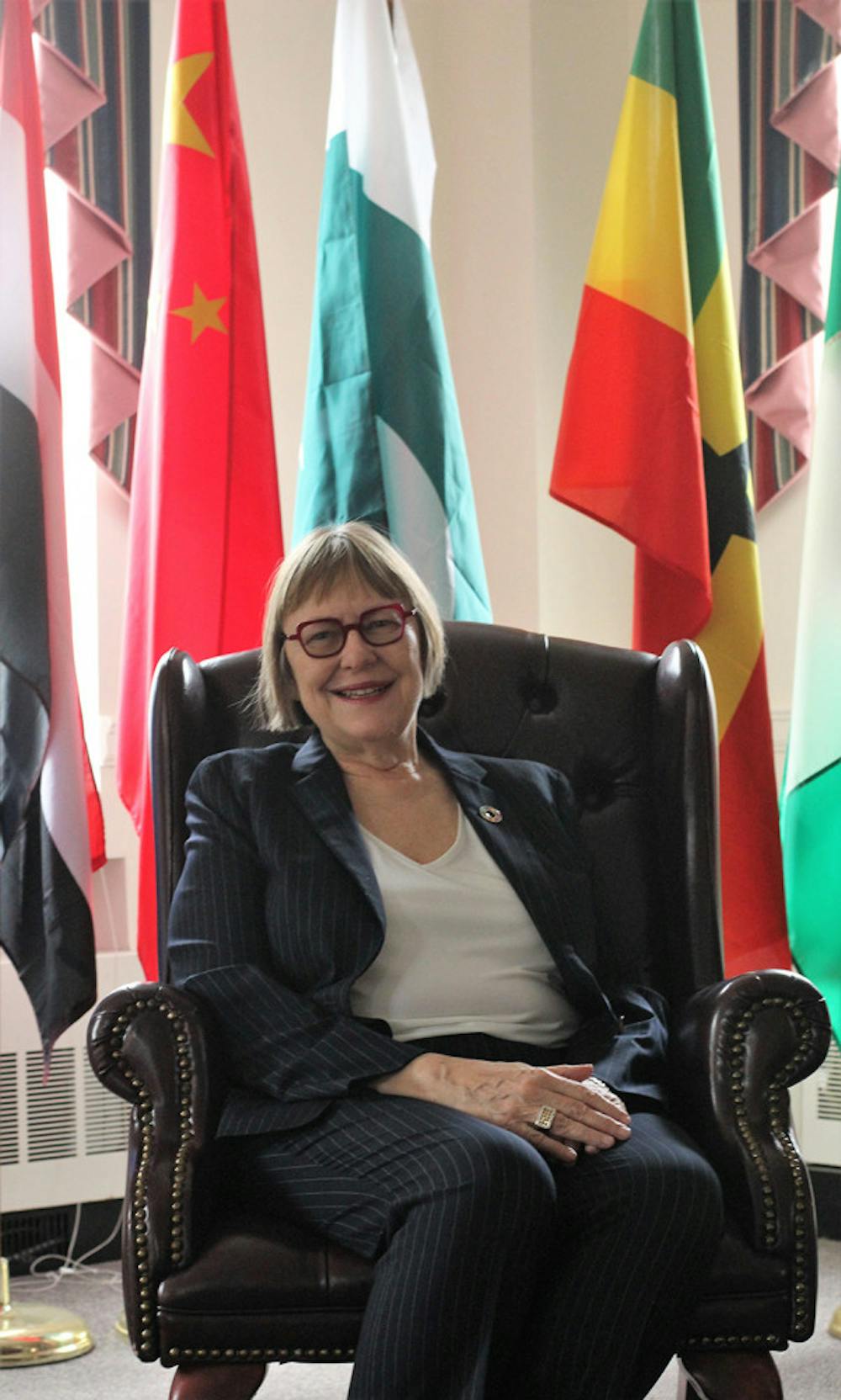Professor Catherine Tinker has been presented with a Fulbright faculty award for 2019-2020, which will allow her to teach in Buenos Aires, Argentina, for a semester in 2020. A distinguished member of the University’s Center for UN and Global Governance studies, Tinker has been invited to study and conduct research at the Universidad Nacional de San Martin.

Tinker, also an international law expert, will be part of the political science and environmental studies departments of the University during her time in Argentina. Her primary focus is interdisciplinary research on the sustainable governance of an aquifer located beneath the surface of Argentina, Brazil, Uruguay and Paraguay. The Guarani Aquifer is one of the largest known aquifers in the world, and it is an essential source for fresh water in all of South America.
Tinker was hesitant to apply for the award at first, despite having visited South America multiple times since the 1980s, spending the majority of her time learning about the literature in these cultures when she was there.
Tinker expressed her gratitude toward the faculty at Seton Hall, who encouraged her to apply and helped her throughout the whole process.
Among those mentioned were Professor Elizabeth Defeis, Professor James Kimble and Dean Andrea Bartoli of the School of Diplomacy.
Visibly passionate about the opportunity to learn more about the Guarani Aquifer, Tinker mentioned that she is interested in seeing how it will be governed and distributed after the two remaining countries, Brazil and Paraguay, recently ratified the regional treaty. Tinker expressed her excitement to learn of recent advancements in the matter. “I am going to get to go back and study, how is it being implemented, how will the commission look and where will it be located,” Tinker said. “That is the reason why I applied for the Fulbright, to go to Argentina. This is the time in history to do this.”
Tinker knows that how systems like this aquifer are governed can have an enormous impact on the planet; this is why she feels that her work there could have large ramifications.
Tinker views this opportunity as something that can have a significant effect on the future. “As an environmentalist, and someone who is enthusiastic about international law, I think there is the potential for survival on the planet if our natural resources are conserved and sustainably used,” she said.
Looking ahead to her time in Argentina, Tinker aims to help prevent harm towards our most valuable resource, water, and she is ready to show that humans must stop the problem before it happens. She said, “Let’s make that happen.”
Jose Balderrama can be reached at jose.balderrama@student.shu.edu. Find him on Twitter at @jc_balderrama.





